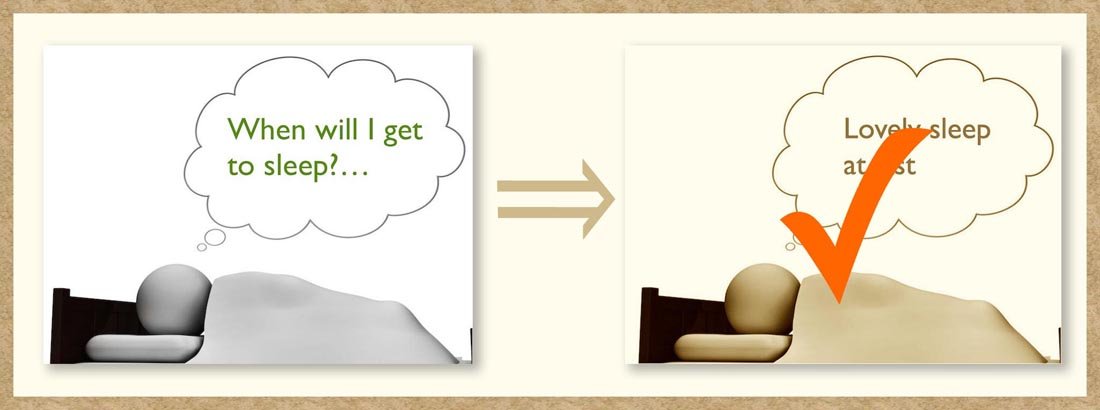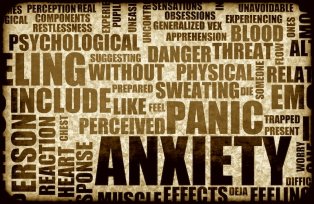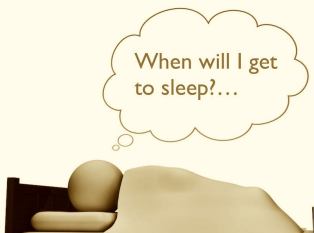 Make Better Sleep More Than a Dream
Make Better Sleep More Than a Dream
Whether you have insomnia or another type of sleep-related issue, you are not alone. About 30-35% of us are likely to be suffering from a severe lack of quality sleep at any one time.
Having good quality sleep of the amount we need is vital to our overall health and wellbeing. So when the reverse is true, i.e. we are getting too little sleep and of consistently poor quality, it can very quickly lead to us having numerous other issues in life.
“A sleepless night is as long as a year.”
Old Chinese Proverb
If we do not benefit from the amount or quality of sleep that we need it can affect our mood, our capacity to learn and function in other ways, and it diminishes our ability to relate well to others. Where sleep issues are more long-lasting they can also undermine our immune system.
Patterns of sleep vary across different cultures and periods of history. However, in modern Britain most people aim to have a single phase of sleep during each 24 hour period - possibly supplemented with one or more naps as we advance in years.
During sleep our mental, emotional and physical health all get a boost.
There is no fixed amount of sleep that we all need, but many adults will find they function well on somewhere between 6-8 hours per night.
When we do find ourselves missing out on the sleep we need, effectively creating a 'sleep debt', each of us has something called a 'sleep homeostat' to redress this, which controls our drive to sleep. If our internal systems are working well our sleep debt will be 'paid off' over the next few nights.
Each of us has various natural (a.k.a. circadian) rhythms relating to specific bodily and mental functions. And there is a specific circadian timer that works alongside our sleep homeostat to control our sleeping behaviour.
The circadian timer for sleep seems to respond primarily to lightness and darkness, employing the hormone melatonin to make us feel sleepy. When there is less light in the environment melatonin production is increased and a feeling of sleepiness tends to develop.
We appear to be strongly programmed to sleep when it's dark.
Our circadian timers are not set in exactly the same way, some of us prefer to be awake early in the morning (larks), whilst others enjoy staying up late (owls).
If our environment is strongly working against the light/dark programming of our circadian rhythm it can be highly disruptive to our sleep patterns.
In general usage…
Insomnia is the inability to fall or remain asleep over a period of several nights.
If you are suffering from chronic insomnia, you are likely to have experienced one or more of the following:- significant fatigue, reduced concentration, irritability & poor mood, memory issues and sleepiness during the day.
Unrelenting day-to-day stress, anxiety and worry can all contribute to short-term sleep problems developing into chronic insomnia.
And unresolved emotionally-charged issues, or traumatic events from the past, can also be key factors in long-lasting insomnia taking hold.
Sometimes it is our physical environment that has a major bearing on our sleep difficulties too.
Often, it isn't immediately clear what the precise causes are, so a careful and detailed approach to finding the best way forward is advisable.
Many of us attempt a do-it-ourself solution to resolve our insomnia. However, if we choose to use effort and willpower this is almost inevitably going to be counter-productive, because we will naturally become more alert whenever we employ this sort of conscious strategy.
And, we may also inadvertently introduce some new elements to our bed-time routine that end up making the situation worse - further adding to our sense of concern about our chronic sleep debt issues.
Instead of trying to 'will ourselves' to sleep, we need to re-establish good sleep-related habits, such as letting ourselves relax physically and mentally as we prepare for bed. No conscious effort is required.
Q. How can we work together to address your chronic sleep problems?
Your situation is unique, so the following is only an outline of the general approach that may be taken to assist you get back to healthy sleeping patterns:-
- A Sleep Audit - Understanding The Issues
-
It's very important for us to build up a detailed picture of your sleep situation, including:-
- Your thoughts and feelings about your sleeping;
- Specific factual details relating to your recent sleep experience;
- What you 'do' and what you 'say to yourself', when you are facing your sleep problems;
- Bedroom environment;
- Other home-related factors;
- Current life issues linked to any stress, worry or anxiety you are experiencing and any other health issues that may be affecting your sleep patterns;
- When and where do you have much better sleep? What's different about those times?
- How your sleep difficulties have evolved over time;
- Any troubling experiences from the past that could be connected to you developing your sleep problems.
-
It's very important for us to build up a detailed picture of your sleep situation, including:-
- Hypnotherapy for Your Insomnia
-
The information gathered from your 'Sleep Audit' and 'Sleep Diary' will greatly inform how we proceed. Below is a generalised outline of what might be helpful to you depending on your individual circumstances:-
- Improved Night-time Routine
By undertaking the same sequence of sleep-supporting actions each night, we are encouraging strong new habits to be formed - inviting our subconscious to play a more dominant role in our pre-sleep ritual. And as our night-time routine becomes increasingly automatic, we take away the strain of making conscious decisions at the end of each day. Doing this helps us to mentally wind-down more quickly and deeply prior to getting into bed.
Making these changes will also support the effective functioning of our circadian rhythm and sleep homeostat.
- Establish a Regular Bedtime
Going to bed each night at a regular time will happen naturally, once all our new pre-sleep habits are firmly established. - Food and Drink in Moderation
If you're someone who wakes up in the middle of the night feeling hungry or thirsty - it could make sense to have a light snack and calming drink at least an hour before you make your way to bed.
However, having a meal immediately prior to going to sleep is not advisable as it will stimulate your body at precisely the time that you are aiming to relax.
For similar reasons, it's very important to exclude energy-dense and highly-stimulating types of food & drink from any evening meals you have.
Some of the most troublesome substances are:-
- Caffeine - it's highly-stimulating and stays in the body a relatively long time;
- Sugar-rich foods - they can upset blood-sugar levels;
- Salty snacks - create a thirst that may disrupt sleep;
- High-protein foods - are harder to digest, so they may lay more heavily on your stomach;
- Alcohol - which may make getting to sleep a little easier, but could cause problems later on. Any alcohol you consume is likely to reduce the overall quality of your sleep and increase the number of toilet trips you need overnight - further disrupting your sleeping patterns.
If your expectation is that consuming these types of ’calming’ substances will help you have a good night's sleep then this is likely to accentuate any purely chemical properties they possess. - Complete Your Day
Helping your conscious mind to switch off at the end of the day is absolutely key to overcoming your insomnia.
So each night before moving onto the relaxation steps of your night-time routine, it’s likely to be helpful for you to set aside a regular amount of time to update your plans, diary entries and to-do lists for both your work & home life.
Now may also be a good time, i.e. whilst you are fully awake, for you to make sure your morning alarm is set to go off at the correct time.
If you tend to get thirsty in the night you might want to place a glass of water by your bedside at the same time, or do it later as part of your final personal care actions.
From time to time you’ve probably found yourself remembering something important, just as you are attempting to go to sleep. In order to stop yourself from using your memory to retain it for the night - which usually only makes you more alert - it's probably best to have a pen and pad of paper by the side of your bed to ensure you can jot down any such thoughts quickly and easily.
If this has ever happened to you, checking that your pen & pad are there and that the pen is working at this stage of your pre-sleep routine could feel like a very worthwhile action.
Of course, if you also find yourself worrying about a number of things as you are lying in bed, you can use the pad to right them down. And you can say to yourself something like “I will look at them in the morning. Once I’ve had a good night’s sleep they will seem a lot less troublesome and I may have some fresh ideas on how to solve them.” - Unplug From Our 24/7 World
One of the most problematic elements of our digital age is the requirement that we are always available to others.
Allowing yourself to disconnect from our 24/7 world each night is an important part of you being able to 'switch off' in preparation for the good quality sleep you need.
Having a clean break from checking emails & texts, browsing the internet, watching TV and listening to the radio can be very helpful in allowing you to completely unwind. And because viewing information on electronic screens can disrupt our sleep-related circadian rhythm it has extra benefits when it comes to overcoming your insomnia.
By switching your mobile to 'do-not-disturb' or it’s night setting, you can further protect yourself from being too highly stimulated towards the end of each day. - Time to Relax: Part 1
Now that you've minimised the chances of something from the outside world disrupting your night-time routine you can focus on completely relaxing. The aim is for you to relax so much that sleep feels the most natural thing in the world to let happen.
As we are naturally programmed to feel sleepier when it gets dark, now is a good time to reduce the level of lighting in your home as much as possible.
In order to relax, you may wish to have a warm bath, listen to some calming music or do a spot of light reading. However each of these options can make some people more alert - so get to know what works for you. - Time to Relax: Part 2
Listening to your own personalised “Getting a Good Night's Sleep” audio recording that's based on our work together, can add to your feelings of relaxation and readiness for sleep. You can choose to listen to the recording in bed or anywhere else that you won’t be disturbed. - Minimise Your Night-time Personal Care Routine.
You’re now ready to go to sleep. So keeping your personal care regime as short as possible will allow you to make the most of your highly relaxed state.
- Establish a Regular Bedtime
- Supportive Bedroom Environment
Improving your bedroom environment can make a big difference to the quality of sleep you experience.
Common factors that can help make your bedroom more sleep-friendly include:-
- Pleasant Room Temperature
Keeping your bedroom at a comfortable temperature throughout the night can be key to resolving your sleep issues; - Limited Noise
Whilst familiar repetitive household sounds may not cause you any problems, sudden louder noises will, so finding ways to stop these affecting you can be a big help; - Little or No Light
Keeping your bedroom as dark as possible is highly recommended. Turning your radio alarm's display away from you may assist too; - Comfortable Bed
Given the amount of time we need to be asleep to function well, having the best possible bed, mattress and pillows that are within our budget is clearly essential. As the seasons change, we may also need to consider the weight of our quilt and bedspread. Small adjustments can make a big difference when it comes to getting the sleep our mind and body need.
Perhaps your partner likes the room much hotter than you do, or they like to keep the bedroom door open when you like it shut. And your partner may also greatly affect your sleep by their snoring, 'duvet hogging', 'teeth grinding' or 'tossing & turning'.
Where bedroom environment problems can’t be solved through practical changes or negotiation, we can work together to minimise the impact of any such issues using hypnosis. - Pleasant Room Temperature
- Healthier Lifestyle
Various lifestyle factors can impact on your night-time sleep issues, including:-
- Avoid or Minimise Naps
Having short periods of sleep during the day can potentially disrupt your sleeping patterns at night; - Keep Trim
If you are carrying a little extra weight this may be contributing to your sleep issues, so taking action could be beneficial. It's important to check with your GP before embarking on a weight management programme; - Stop Smoking
Smoking just before you go to bed is highly likely to disrupt your patterns of sleep - not least because nicotine is a stimulant; - Exercise Regularly
Undertaking some form of regular physical exercise is likely to improve your mood, reduce your stress levels and help you be more relaxed at bedtime. It's best to do this activity no later than early evening to avoid being too energised when you go to bed.
- Avoid or Minimise Naps
- Relief From Current Health & Life Problems
If you have significant stress, anxiety, worry or other overlapping health issues, these will need to be addressed separately, before we start to work on your insomnia difficulties. - Explore Issues From The Past
Where there is a demanding event from the past that appears to be connected to your insomnia issues, we can work together to help you release any emotional charge that is attached to it and help you gain some much-needed insight. Achieving this sort of outcome can be very helpful in resolving insomnia difficulties. - Improved Self-Talk & Coping Behaviour
As your insomnia has developed it's likely that your thoughts, feelings and behaviour about the situation have themselves gradually become part of the problem. It's vitally important that we work to address any such issues.- Your Relationship with Sleep
Clearly, how you are likely to be talking to yourself about sleep is going to be somewhat negative.
Perhaps, on occasion, you've even thought something like “I'm never going to get a good night's sleep ever again”. Not only is this an unhelpful statement to make to yourself it also reveals a belief that your current issues are insoluble and will last for the rest of your life!
Patently, if you're having thoughts of this sort we need to help you change them for you to get back to having healthy sleep patterns. By carefully exploring the way you talk about your sleep issues we will be able to discover the beliefs and attitudes that underpin your problematic self-talk and we can work to replace them with more helpful ones.
Each of us tends to have an inner language that is rich with metaphors and to which our subconscious mind is particularly responsive. So by making use of that uniquely evocative language we can more easily generate shifts in your thinking using hypnosis. - Bedroom Associations
For healthy sleepers the main activities they are likely to associate with their bedroom are sleep, sex, dressing & undressing. However at the moment you are probably going to associate your bedroom with one thing more than anything else - your sleeplessness.
To break that association we need to work to increase the proportion of time you are in bed asleep. So whenever you find yourself in bed not sleeping for more than 15-20 minutes it will help if you get up and leave your bedroom and only return when your are feeling sleepy.
It's probably most effective to get into the habit of going to the same quiet place in your home and undertaking a rather dull and mentally tiring activity that will quickly make your eyes get heavy and your energy drop. Once you are sufficiently sleepy you can return to your bedroom ready to get to sleep immediately.
Clearly, doing anything that is even vaguely stimulating will just lengthen the time you stay awake - and is something to be avoided at all costs. - Getting to Sleep
An approach we can explore for any remaining ‘getting to sleep’ problems is to temporarily push back the time you go to bed until you find yourself getting to sleep without issue.
After repeating this successful result for a couple of days the aim will then be to bring your bedtime earlier again in a step-by-step fashion until you benefit from the duration of sleep you need to function well. - Returning to Sleep
If you do continue to wake up in the middle of the night, we will work on developing a personalised approach that helps you quickly return to a more restful state.
If specific dreams are recalled when you awake, the themes of these are likely to help us pinpoint some or all of the specific inner concerns that are contributing to your insomnia. And once these emotional issues have been revealed, we can work together to help you explore and resolve them using hypnosis.
- Your Relationship with Sleep
- Improved Night-time Routine
-
The information gathered from your 'Sleep Audit' and 'Sleep Diary' will greatly inform how we proceed. Below is a generalised outline of what might be helpful to you depending on your individual circumstances:-
As with all forms of therapy - the precise results achieved may vary from person to person.









